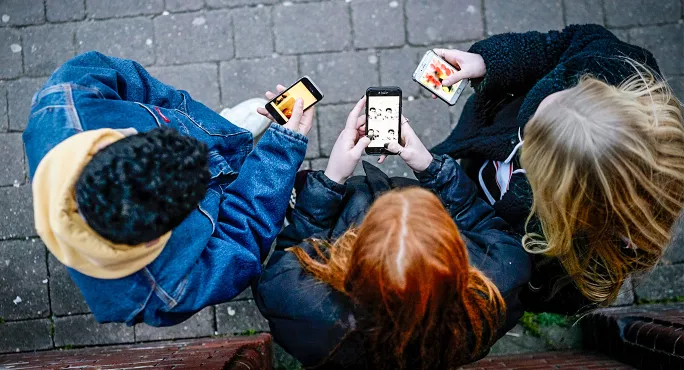The government is doing ŌĆ£too little, too slowlyŌĆØ on the issue of mobile phones for children, the chair of the Commons Education Select Committee has warned.
Speaking at the second reading of the Protection of Children (Digital Safety and Data Protection) Bill in the House of Commons, Labour MP Helen Hayes urged the government to ŌĆ£put a framework in law which can help parents, schools and professionals with mobile phone useŌĆØ.
Her comments today came as the government was criticised over a ŌĆ£watered downŌĆØ second version of what is more informally known as the Safer Phones Bill, which was first introduced by Labour MP Josh MacAlister in October 2024.
The Private MembersŌĆÖ Bill initially called for the government to consider a statutory ban on mobile phones in schools, should the non-statutory guidance introduced by the Conservative government be found ineffective.
However, education secretary Bridget Phillipson dismissed more recent Conservative calls to introduce a complete ban on phones in schools, saying that the ŌĆ£vast majority of schoolsŌĆØ already enforce phone bans.
U-turn on phone ban in schools
Mr MacAlister told MPs in the Commons today that this aspect of the bill had been dropped so that his draft proposed legislation could ŌĆ£secure explicit government backingŌĆØ.
ŌĆ£ItŌĆÖs been written to achieve change rather than just highlight the issue,ŌĆØ Mr MacAlister, a former teacher, told Parliament.
ŌĆ£That is why the bill before us is narrower than where I started when this campaign began six months ago.ŌĆØ
If the bill is passed, it will instruct UK chief medical officers to publish advice for parents on childrenŌĆÖs use of smartphones and social media.
It will also compel ministers to say within a year whether they plan to raise the age at which children can consent to their data being shared without parental permission.
ŌĆśMaking teachersŌĆÖ work more difficultŌĆÖ
Kit Malthouse, a Conservative former education secretary, criticised the latest version of the bill as a ŌĆ£hollowed out gestureŌĆØ, and warned that teachersŌĆÖ lives will become ŌĆ£immeasurably more difficultŌĆØ without a complete phone ban.
Earlier this year the Commons Education Select Committee recommended that the government should formally monitor the impact of a non-statutory ban on mobile phones in schools.
However, school leaders criticised the non-statutory guidance as a ŌĆ£non-policy for a non-problemŌĆØ, considering that many schools already had their own internal phone policies in place.
Teacher Tapp research last year showed that only 1 per cent of schools allowed the use of mobile phones at any time, and just 6 per cent of secondaries allowed it at breaks and lunch.
Ms Hayes, who backs the bill, said she ŌĆ£shares the concerns of many in this House that the government is not acting fast enough in the face of evidenceŌĆØ on child mobile phone use.
She said the current version of the bill will deliver ŌĆ£some positive interventions that will make a differenceŌĆØ, but that the government was ŌĆ£doing too little, too slowly on this issueŌĆØ.
Call for higher age for digital consent
The Liberal Democrats also raised concerns that the bill had been ŌĆ£watered downŌĆØ to gain government backing.
The party has tabled an amendment to the bill, which would raise the digital age of consent from 13 to 16. Specifically, it would raise the age for processing personal data in the case of social networking.
However, many school leaders continue to support the bill.
Paul Whiteman, general secretary of the NAHT school leadersŌĆÖ union, said schools need a ŌĆ£better understanding of the impactsŌĆØ of mobile phones, and that the government should take ŌĆ£proactive action to safeguard children and young peopleŌĆØ.
ŌĆ£The provisions in the proposed bill would be a positive and sensible step forwards,ŌĆØ he added.
For the latest education news and analysis delivered every weekday morning, sign up for the Tes Daily newsletter





